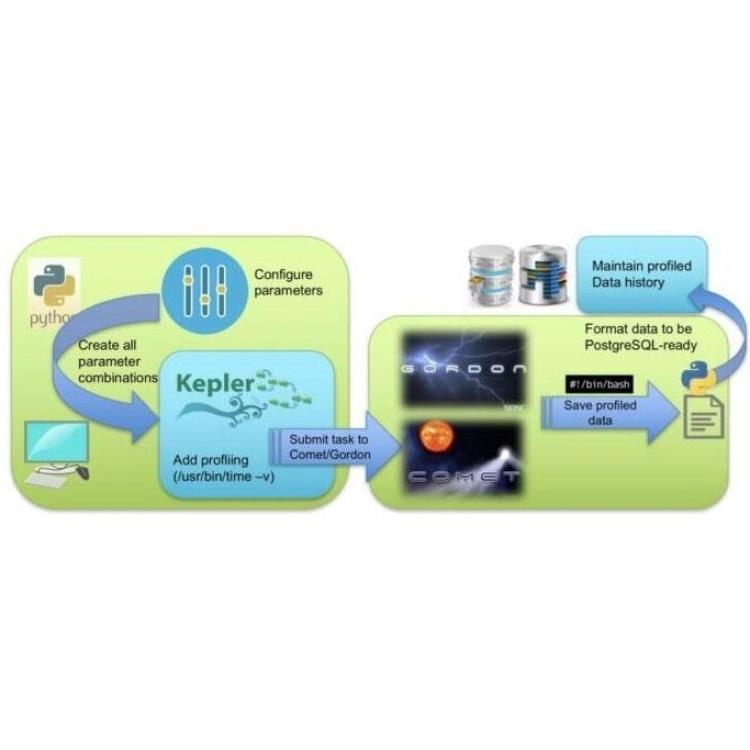Integrated End-to-End Performance Prediction and Diagnosis for Extreme Scientific Workflows (IPPD)
This report details the accomplishments from the ASCR funded project “Integrated End-to-end Performance Prediction and Diagnosis for Extreme Scientific Workflows” under the award numbers FWP-66406 and DE-SC0012630, with a focus on the UC San Diego (Award No. DE-SC0012630) part of the accomplishments. We refer to the project as IPPD. The main activities of IPPD were centered on the development and integration of provenance information to capture empirically workflow information and identify the sources of bottlenecks as well as variability, and modeling and simulation to provide insights and predictively explore multiple scenarios for development of advanced techniques for optimization of resources and workflow execution. After a Phase I of the project, a Phase II effort focused on three major aspects: a) observe how data is generated, distributed, and used; b) analyze how data is (repeatedly) consumed with a focus both on repeated patterns and anomalies; and c) explore how to optimize data motion. The project leveraged and extended our existing tools with new research and demonstrated our work on the Belle II workflow suite as well as on workflows from NSLS-II.



